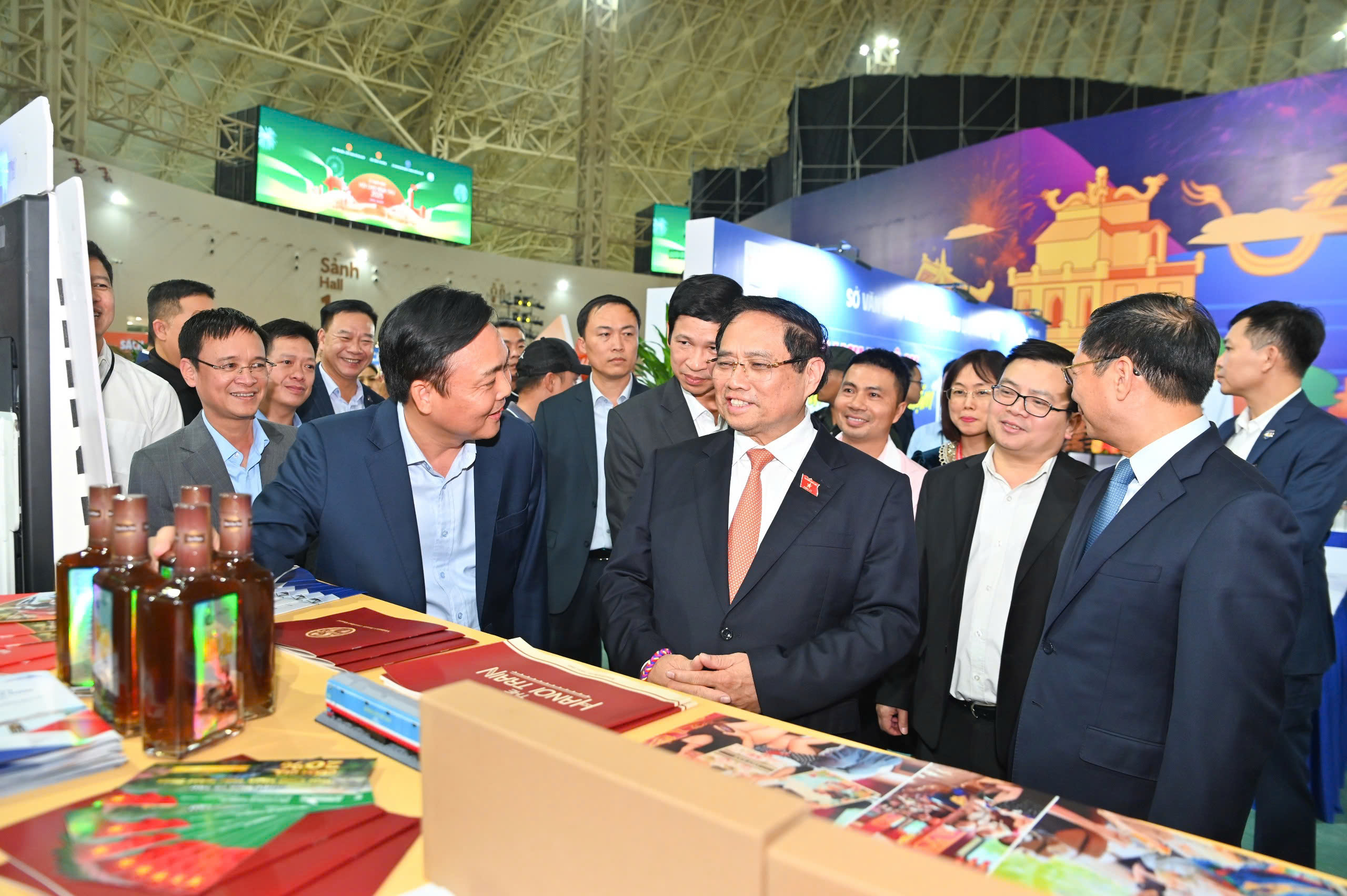
Photo: Thousands of OCOP products “land” at the Vietnam Golden Autumn Fair 2025
19:05 | 23/03/2025 22:24 | 24/10/2025Trade
On September 11, Deputy Prime Minister Bui Thanh Son chaired a nationwide conference to review the implementation of Decision No. 768/QĐ-TTg dated April 15, 2025 on the Approval of the Adjusted Power Development Plan VIII and solutions to ensure future electricity supply. Minister of Industry and Trade Nguyen Hong Dien coordinated the conference from the Lam Dong provincial venue.
Attending the Lam Dong site were leaders from the Ministry of Industry and Trade’s Office, Departments and Directorates; executives from major energy corporations (EVN, Petrovietnam, TKV); and the provincial leadership of Lam Dong.
Implementation of the Adjusted Power Development Plan VIII
At the conference, Deputy Minister of Industry and Trade Truong Thanh Hoai presented a summary report on the implementation of the Adjusted Power Development Plan VIII, outlining current difficulties, obstacles, and proposed solutions to secure electricity supply in the coming period.
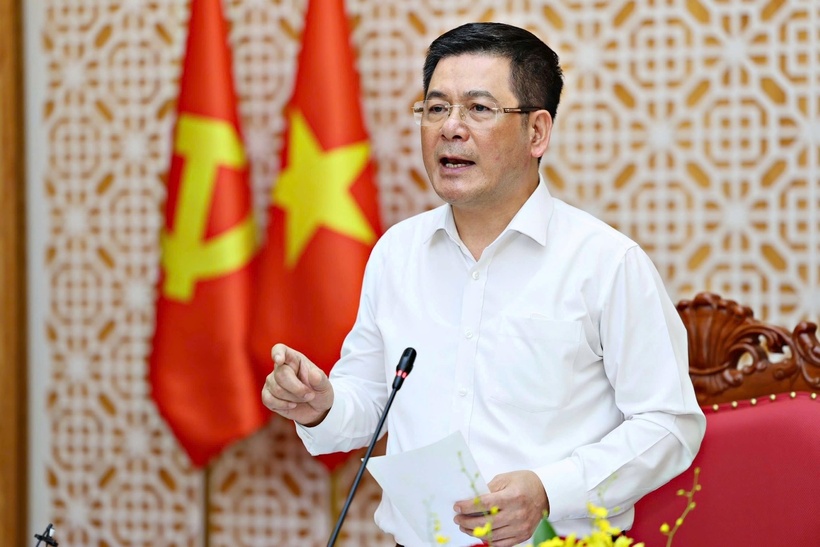
Minister of Industry and Trade Nguyen Hong Dien delivered a speech at the conference.
According to the report, the Ministry of Industry and Trade (MoIT) has issued numerous directives to EVN and local authorities to accelerate power generation and grid projects in line with the approved schedule; convened multiple meetings to expedite project progress; and organized four inspection missions for key power projects.
During the first eight months of 2025, national peak electricity demand reached a record 54,370 MW on August 4 (an 11.1% increase over 2024). The northern power system in particular recorded an all-time high of 28,167 MW (up 12.2% year-on-year). Electricity supply during this period basically met actual consumption needs, ensuring stable power provision for holidays, the Lunar New Year, and major political and cultural events nationwide.
Three priority tasks
Speaking at the conference, Minister Nguyen Hong Dien emphasized that implementation of the adjusted Power Development Plan VIII, especially key projects remains limited. He cited both objective and subjective reasons: objectively, the recent nationwide administrative reorganization and revisions to multiple laws and decrees have slowed progress. Subjectively, the primary issue lies in the initiative and decisiveness of relevant authorities at all levels.
Offshore wind and nuclear power projects fall under central government authority, while all other projects are the responsibility of provincial governments. Yet many projects have not started or show very low completion rates. Authority and responsibility for implementing the plan have been clearly decentralized: ministries mainly handle mechanisms and policies, while provincial governments are responsible for planning decisions, investor selection, and project approval, except for offshore wind and nuclear projects.
To speed up the implementation process, the Minister emphasized three main tasks that local authorities need to carry out in a coordinated manner.
First, each province should take the initiative to review its existing plans and bring the power development plan and other related sectoral plans into alignment with the provincial master plan. At the same time, land-use plans must be adjusted so that every project has a clear legal foundation from the outset.
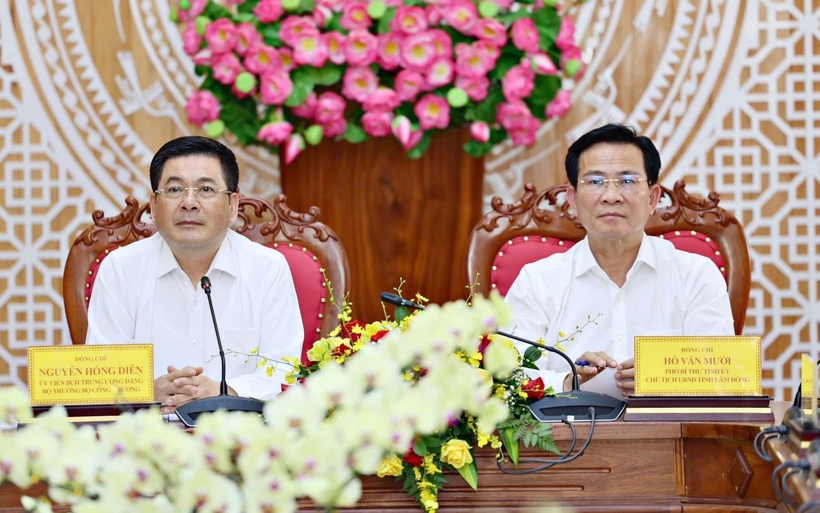
Minister of Industry and Trade Nguyen Hong Dien and Ho Van Muoi, Chairman of the Lam Dong Provincial People’s Committee.
Second, local governments are expected to quickly identify and select suitable investors, provide them with active support, and remove any procedural or technical obstacles as soon as they arise. If problems exceed the local mandate, the issues should be reported without delay to the relevant ministries so they can be resolved. The Ministry of Industry and Trade has committed to working closely with provinces and, when necessary, sending specialists to assist in moving key projects forward.
Third, provinces must maintain consistent oversight of all energy projects on their territory. This includes closely tracking progress, promptly handling any difficulties that occur, and taking corrective action whenever violations or delays are detected.
If, during implementation, provinces identify inconsistencies in mechanisms, policies, laws, decrees, or circulars, they should promptly report them so that MOIT can propose expedited amendments to the competent authorities. Where necessary, the Government may issue special resolutions to resolve critical issues.
For state-owned energy groups and corporations, strict compliance with government directives is required to operate at full design capacity and to accelerate ongoing projects, particularly those of EVN and Petrovietnam.
“The Ministry of Industry and Trade is expediting the issuance of a transmission tariff mechanism that is fully cost-reflective ‘accurate, sufficient, and comprehensive’ to attract private investment”, Minister Nguyyen Hong Dien stressed. “In parallel, it is essential to develop a domestic electrical equipment manufacturing industry to reduce imports, cut costs, and improve investment efficiency. Recommendations and proposals from localities, ministries, sectors, and enterprises will be consolidated, addressed within our authority, and reported to the Government. MOIT will also coordinate with other ministries to study and consider issues beyond our jurisdiction based on the recommendations made at today’s conference”.

19:05 | 23/03/2025 22:24 | 24/10/2025Trade

19:05 | 23/03/2025 22:21 | 24/10/2025Trade
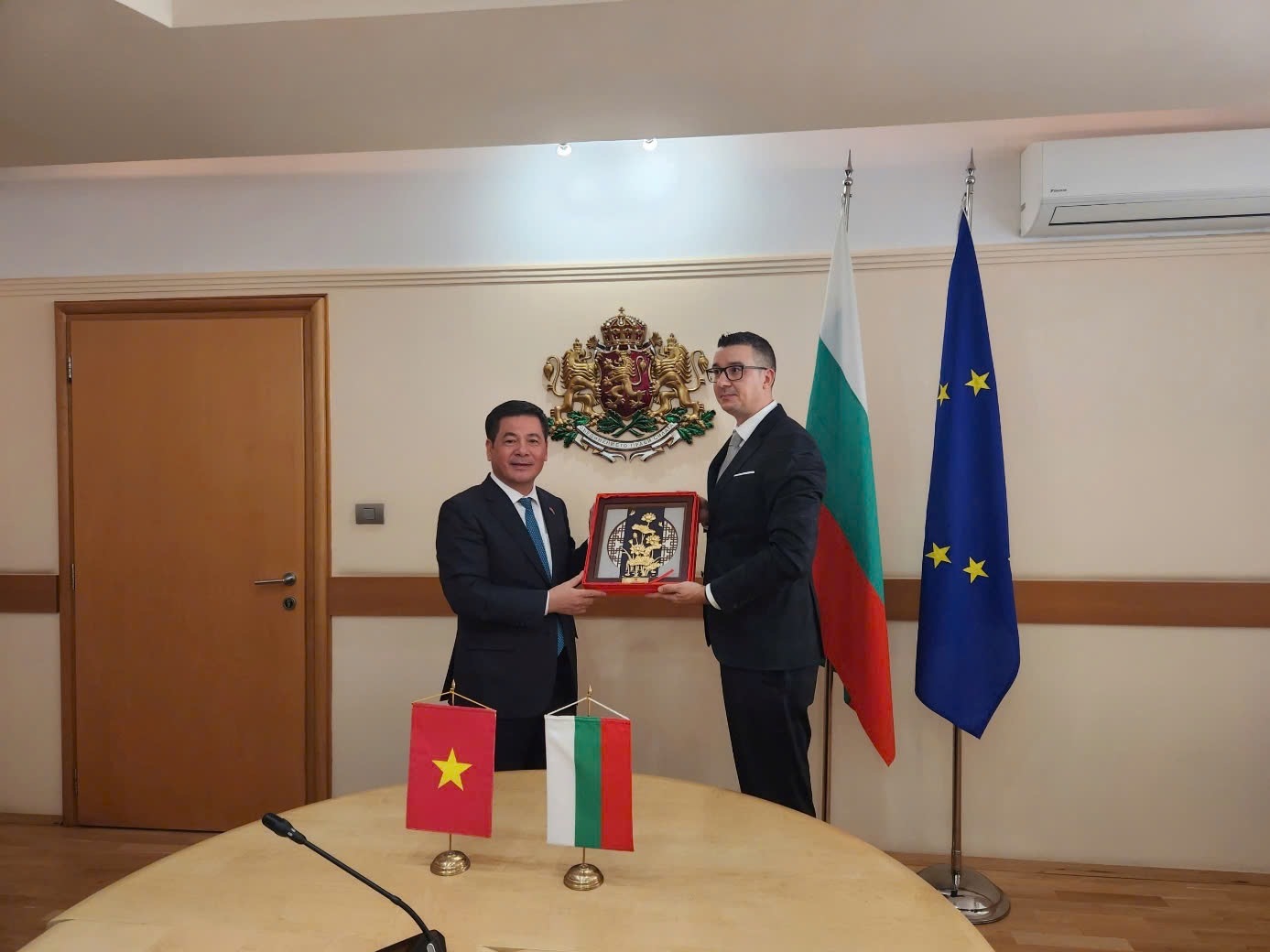
19:05 | 23/03/2025 21:48 | 24/10/2025News and Events
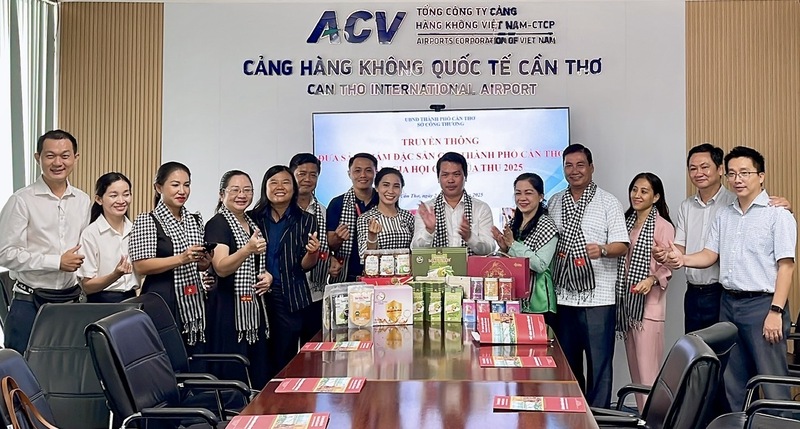
19:05 | 23/03/2025 19:03 | 24/10/2025Trade

19:05 | 23/03/2025 18:58 | 24/10/2025Industry